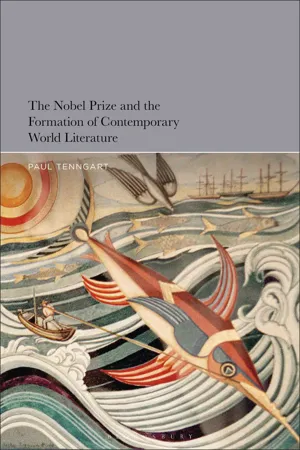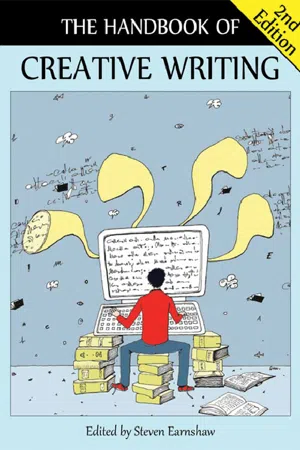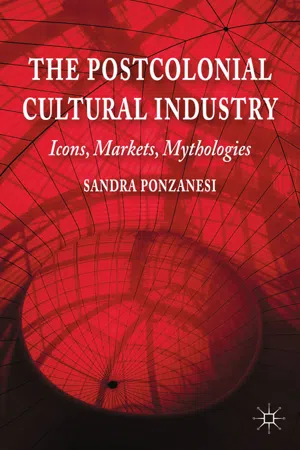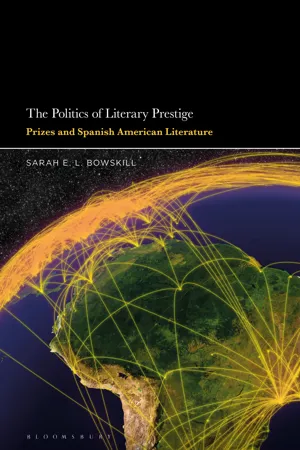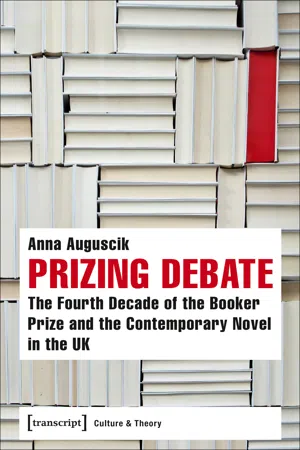Literature
Literary Awards
Literary awards are honors given to outstanding works of literature, often to recognize excellence in writing, storytelling, and literary achievement. These awards can elevate an author's reputation, increase book sales, and bring attention to important literary works. They also serve to inspire and motivate writers to produce high-quality literature.
Written by Perlego with AI-assistance
Related key terms
1 of 5
5 Key excerpts on "Literary Awards"
- Paul Tenngart(Author)
- 2023(Publication Date)
- Bloomsbury Academic(Publisher)
5 Defining Literature: The Poetics of the PrizeEvery mid-October the discussion starts again. When the Swedish Academy announces the name of that year’s Nobel laureate, reactions are never univocal. Some critics and readers mean that the Academy this time around has made an excellent choice. Others shrug in a state of anticlimactic disappointment. Still others cannot believe their ears: Why on earth are they rewarding this particular author when that other one is still waiting to receive the honors? Arguments and opinions differ, but the fundamental attitude to literature is common in all these reactions: that literary values and merits can be justly compared, and that only the very best ones—the top-notch handful of all the world’s men and women of letters—deserve to be awarded with the Nobel Prize.These annual expressions of joy, pride, bewilderment, contempt, and frustration reveal an inescapable fact: that the group of eighteen Scandinavian intellectuals who call themselves the Swedish Academy form one of the most powerful institutions in the world in defining transculturally valid literary values. “The Nobel Prize,” writes Pascale Casanova, “is today one of the few truly international literary consecrations, a unique laboratory for the designation and definition of what is universal in literature” (Casanova 2013: 278).The Nobel Prize’s focus on universal aesthetic values has been there right from the start. They were already mentioned in Alfred Nobel’s last will. Just like the other four awards—in Physics, Chemistry, Medicine, and the Peace Prize—the literary prize was to be bestowed upon a person who had “conferred the greatest benefit to humankind” (Svensén 2001a: ix). This instruction was to be applied to all five prizes, even though it had and still has very different implications in the five different areas of achievements. What is universally beneficial in Physics, Chemistry, and Medicine cannot really be compared with wide, transcultural beneficial effects of literature and peace work, and putting human experiences and thoughts into poignant words is not at all similar to solving political and military conflicts between peoples and nations. As for literature, Alfred Nobel could not foresee the epistemologically problematic and ideologically charged navigation between languages and cultures, and the fundamentally imbalanced international power structures that instruct the recognition of different literary traditions. Nor could, of course, the writers of the Nobel Foundation’s statutes and the early Nobel Committees.- eBook - PDF
- Steven Earnshaw(Author)
- 2014(Publication Date)
- Edinburgh University Press(Publisher)
52 Literary Life: Prizes, Anthologies, Festivals, Reviewing, Grants Thomas Shapcott Prizes In the world of contemporary literary culture there are many baits and inducements still, even though book culture is, as it always was, threatened by economic and other challenges. There are, for instance, the proliferation of literary prizes which range from the world-acclaimed (and profitable) Booker Prize, the Whitbread Prize, to the Pulitzer Prize (in the US), the Governor General’s Prize (Canada) and the Miles Franklin Award (Australia) as well as a veritable host of other prizes and awards. These represent pinnacles, and even runners-up in the very grand awards can proudly announce the fact on their next dust-jacket, or their CV. Such prizes represent the peak, or the ultimate goal, for aspiring authors. I have listed a handful, but in the English-speaking countries there are dozens more of almost equal prestige. Authors, publishers, even book-sellers, can find in such prizes the very real incentive to foster the promotion of winning (or even short-listed) books, and everyone gains. The proliferation of Literary Awards accelerated towards the end of the twentieth century (the IMPAC Dublin literary prize – for a novel – only began in 1993, and it is the richest prize in money terms and, increasingly, in prestige terms). One of the consequences of this has been a certain sense of glut, so that it becomes increasingly difficult to gain media attention. Such awards, however, remain of great value to an author – and not only in cash terms (and in some countries, including Australia, the cash prize is, in effect, shared by the lucky author with the taxation department). Feature articles, ‘profiles’ and radio or television interviews suddenly become easier, or more frequent. Libraries show an interest (and in some countries Public Lending Right for books held in libraries can add effectively to an author’s steady income). - eBook - ePub
The Postcolonial Cultural Industry
Icons, Markets, Mythologies
- S. Ponzanesi(Author)
- 2014(Publication Date)
- Palgrave Macmillan(Publisher)
Chapter 4 , which focuses on minor literary prizes that struggle to promote postcolonial literature in vernacular languages, such as the African Noma Literary Prize or the Indian Sahitya Akademi Award, or prizes that concentrate on specific geographical areas such as the MacMillan Literary Prize and the Caine Prize, both for Africa.2.1 Nobel Prize for Literature (1901)The Nobel Prize for Literature is one of the most cherished and authoritative institutions in the literary field and is considered to be the highest achievement a living author can aspire to. One of the general requirements set by the Academy is that the prizes should be conferred on candidates who have bestowed ‘the greatest benefit on mankind’ by moving literature ‘in an ideal direction’ (Wallin Levinovitz and Ringertz 2001: 138). Richard Jewell commented that the understanding of the idealistic tendency as intended by Alfred Nobel (who was a utopian idealist, a radical anticleric and an unmarried man) was turned upside down by the Academy which, particularly in the first decade, gave a conservative turn to the notion of idealism interpreted more literally as the ideas of ‘great style’ and of ‘universal interest’ (Jewell 2000: 105).As with any prize, the Nobel Prize is based on a process of inclusion and exclusion. It is not only renowned for its prestigious list of distinguished laureates but also for its resounding omissions. The list is haunted by the ghosts of many monumental figures for whom this illustrious prize remained elusive: Leo Tolstoy, Jozef Conrad, Henrik Ibsen, James Joyce, Henry James, Virginia Woolf, Franz Kafka, Marcel Proust, Jorge Luis Borges, Italo Calvino and Maguerite Yourcenar, to name but a few. As Burton Feldman writes, ‘As the list of laureates makes clear, the Nobel Prize in literature is still far from being the global award it claims to be. Its prizes have repeatedly gone to writing in a few major European languages, primarily English, French, German, Spanish’ (Feldman 2000: 59). The history of the Nobel Prize does, indeed, see the prize being awarded to a disproportionate number of Scandinavian writers (almost one-seventh of the total, and the 2011 prize went to another Swedish poet, Tomas Tranströmer), and a lack of awards to any writers from India (only Tagore won the 1913 prize for a translation of his work), from Brazil or the Netherlands, and no Nobel Prize for work written in the Bantu or Malayalam languages, or any other ‘minority language’. - eBook - PDF
The Politics of Literary Prestige
Prizes and Spanish American Literature
- Sarah E.L. Bowskill(Author)
- 2022(Publication Date)
- Bloomsbury Academic(Publisher)
This reading was supplemented by article- length studies of prizes relating to Anglophone literatures in Africa by L. Attree (2013), Doseline Kiguru (2016) and D Pucherová (2011). Nathalie Heinich’s (1999) fascinating study of authors’ experiences of winning the Goncourt Prize helped me to realize the importance of considering the perspectives of different stakeholders. Prizes first caught my attention as mechanisms of canon formation while writing my own doctoral thesis and subsequent monograph on the twentieth-century Mexican canon in which I discuss the politics behind the creation and first instance of the Mexican Premio Nacional de Literatura (National Prize for Literature) (Bowskill 2011). Edward Mack’s (2010) study of the Japanese Akutagawa and Naoki Prizes was an important, and very readable, reminder of how prizes relate to the wider process of circulation and canon formation. Unsurprisingly, as probably the world’s best-known award for literature, the Nobel Prize has caught the critical imagination. Burton Feldman (2000) provides an excellent overview of all of the Nobel prizes. Richard Wires (2008) and Renee Winegarten (1994) analyse the prize for literature specifically. Kjell Espmark, member of the Swedish Academy, provides an insider’s perspective (1986). Julia Lovell (2006) looks at the politics surrounding China’s bid to have a Chinese laureate and the eventual award to Mo Yan. Rebecca Braun (2011) looks at the prize from a European perspective and has also studied literary prizes in Germany (2014). These texts inform my discussion of the Spanish American winners of the Nobel Prize for Literature in Chapter 3 even as I depart from the tendency to discuss the politics surrounding the choice of laureate to consider the political significance the authors try to negotiate for the award through their acceptance speeches. - eBook - PDF
Prizing Debate
The Fourth Decade of the Booker Prize and the Contemporary Novel in the UK
- Anna Auguscik(Author)
- 2017(Publication Date)
- transcript Verlag(Publisher)
Literary and book scholars compiled lists of award winners and combined these with short, dictionary-like descriptions of the respective prizes, which was conducive to keeping track of their perceived ex-pansion. 1 In order to debate prizes’ position in the field, their relationships with other participants, and their overall advantages and disadvantages to a mix of these participants, scholars also gathered voices from the literary world, drew up lists of arguments for and against literary prizes, and reached conclusions in ei-ther direction based on these testimonies as well as on the quality of the lists of winners. 2 Today such arguments in favour of and against prizes are quite com-mon in journalistic prize commentary, but some of the early reflections on prizes – their relations with other representatives of the industry, the element of com-petitiveness and the question of whether they further the cause of literature, as well as their significance in shaping literary value and canon formation – have also influenced how awards are regarded in academia and the readiness (or, for 1 Cf. Bessie Graham, Famous Literary Prizes and Their Winners , ed. Jessie H. Murray (New York: Bowker, 1935); Fred B. Millett, “Literary Prize Winners”, English Journal 24.4 (1935): 269-82; Duke Rank, “Major Literary Prizes: 1945-63”, College English 25.2 (1963); Ian Marshall, “Literary Prizes”, British Novelists, 1930-1959: Part 2: M-Z , ed. Bernard Oldsey, Dictionary of Literary Biography (Detroit, MI: Gale, 1983). 2 Cf. Richard G. Lillard, “Competing for a Literary Prize?”, Saturday Review of Literature 28 (4 Aug. 1945); Stephen Rubin, “Literary Prizes: All That Glory Is Not Gold”, Book World 2 Aug. 1981; Lawrence Sail, “Good, Better, Best”, PN Review 21.6 (1995). P ART I: C ONTEXTS | 27 much of the twentieth century, the lack of it) to seriously engage with the culture of literary prizes.
Index pages curate the most relevant extracts from our library of academic textbooks. They’ve been created using an in-house natural language model (NLM), each adding context and meaning to key research topics.
